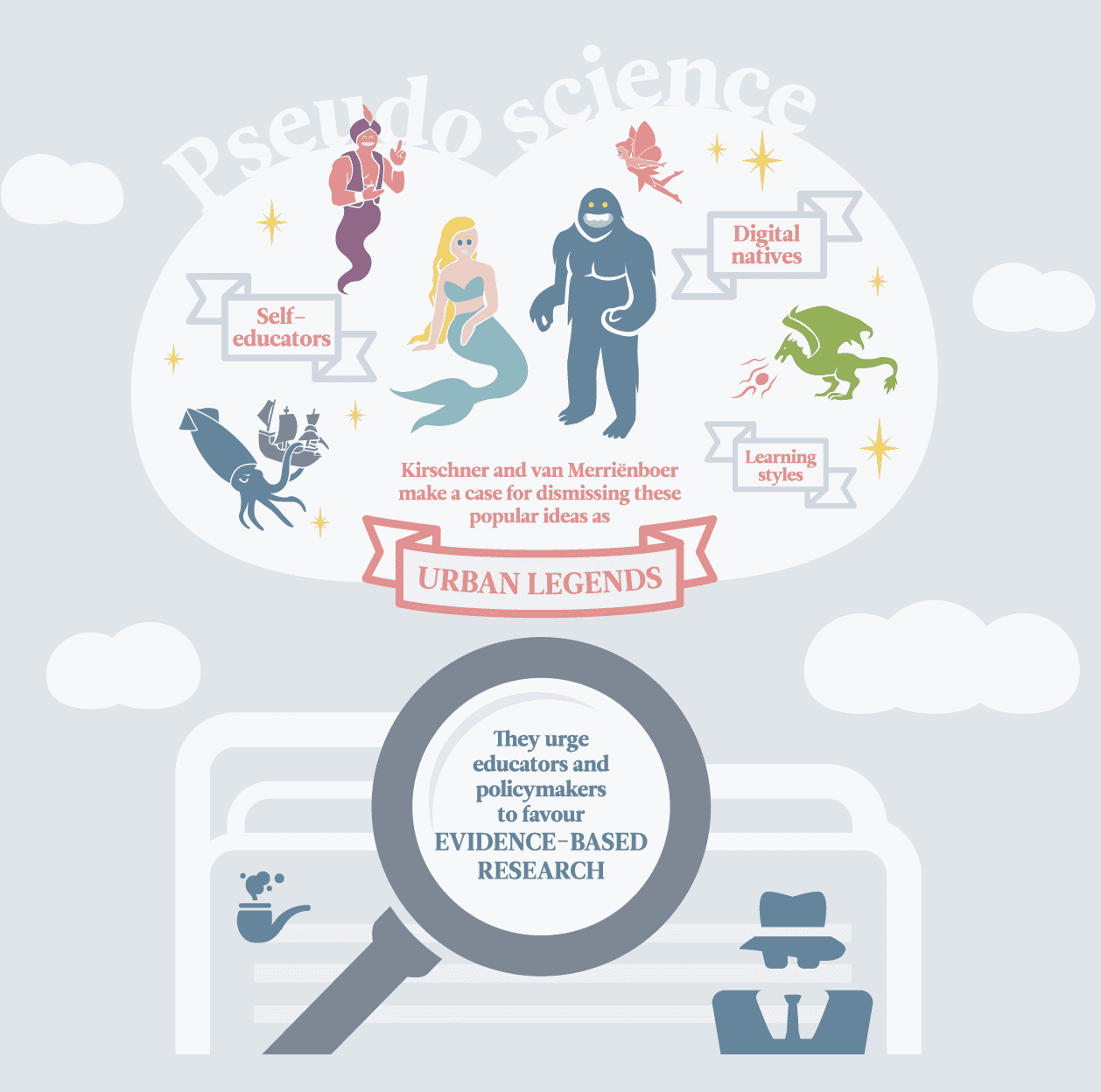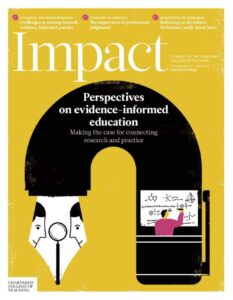Dominic Shibli discusses Kirschner and van Merriënboer’s paper debunking three popular ‘myths’ in educational research.
I have been teaching for 20 years but it was only about 18 months ago that I discovered the work of Paul Kirschner when I read the paper ‘Do learners really know best? Urban legends in education’ by Paul A Kirschner and Jeroen JG van Merriënboer. The paper identifies three popular myths in education and then expertly slays them with evidence. These are:
- learners as digital natives
- learners have specific learning stylesTheories relating to the idea that individuals learn best in different ways and teaching should be tailored to their learning styles – these have been widely debunked by research
- learners as self-educators (on the internet).
This was my eureka moment; I had found some answers to my own dissatisfaction with my teaching, teacher training and continuing professional development (CPD). I had planned lessons on computers that guided the students to discover the answers for themselves in the hope that it would be engaging. I can’t remember how learning styles had crept into my profession but it is like they had always been there, hanging over me like the sword of Damocles, demanding my attention. I can recall a lesson when a student was sat with his arms folded as he announced that my introduction was visual and audio but he was a kinaesthetic learner so he was not going to do it. I explained to him that these styles were, in fact, preferences and students have to work on the styles to which they think they are not suited. But the damage had been done. A student had wasted valuable time but, in a way, he had listened to an explanation about learning styles and then applied his understanding to something that suited him.
Why Paul Kirschner is so important to me is because his work has led me to think about other aspects of my practice. Kirschner’s paper identifies multitasking as very inefficient: ‘… there is strong evidence that multitasking and task switching impair performance and learning’ (Kirschner and Merriënboer, 2013). Teachers must be the ultimate multitaskers with all the decisions that they make during a lesson. This emphasises the need for a calm and purposeful learning environment because distraction will impair teaching and learning.
I have also applied this to my own lesson-planning. As a science teacher, I keep it simple and don’t jump from one task to another in search of maximising engagement. I want to maximise learning. It is important that tasks are broken down into small, manageable chunks that students can master and that they achieve success before they move onto something else.
It has also meant that I have rethought when to do practical work, which has always been seen as an integral part of a science teacher’s toolkit. I have applied Kirschner’s work on information processing to the delivery of practical work, when students have to listen to instructions, gather equipment and then try to apply scientific principles to a process that is new to students. If practical work is done too early in the sequence of a lesson then it might confuse the learner and reinforce misconceptions. With more abstract concepts like electricity, I now like to do practical work later on in the topic so that students are no longer novices fumbling about in the dark, trying to connect circuits together and making lamps light up with no idea about the flow of current. Misconceptions are always difficult to unpick, so it is essential that students are primed and ready for practical work. I know students love doing practical work, but I think it is often for the wrong reasons and not as an opportunity to reinforce learning.
However, Kirschner’s work on slaying learning styles is not done. An article in the Guardian Online from March 2017 had the headline ‘Teachers must ditch “neuromyth” of learning styles, say scientists’. I wholeheartedly agree. Let’s send a message that teachers are evidence-informed and will send these pernicious myths onto the scrap heap now!
References
Kirschner P and van Merriënboer J (2013) Do learners really know best? Urban legends in education. Educational Psychologist 48(3): 169-183. DOI: 10.1080/00461520.2013.804395*
Weale S (2013) Teachers must ditch ‘neuromyth’ of learning styles, say scientists. The Guardian, 13 March, 17. Available at: https://www.theguardian.com/education/2017/mar/13/teachers-neuromyth-earningstyles-
scientists-neuroscienceeducation?CMP=ema-1693&CMP= (accessed 30 March 2017).
Further reading
Kirschner’s blog is worth reading to discover more about his current research: Kirschner P, 3-star learning experiences (blog). Available at: https://3starlearningexperiences.wordpress.com/ (accessed 30 March 2017).
An interesting, in-depth discussion of these issues can also be found in this book: De Bruyckere P (author), Kirschner PA (contributor) and Hulshof CD (contributor) (2015) Urban Myths about Learning and Education. London: Academic Press.













